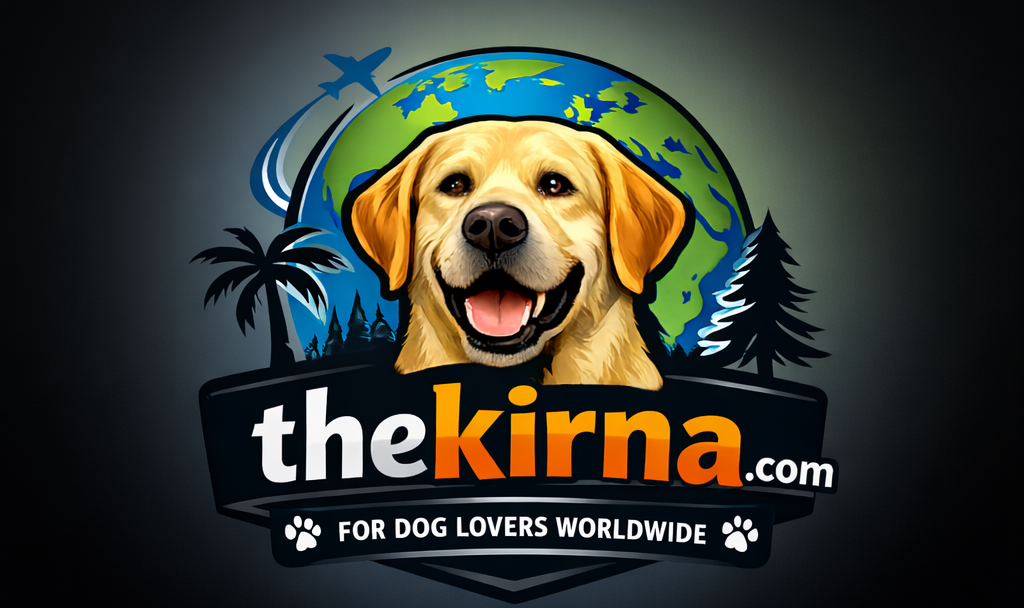Dogs have always been our most loyal companions, but sometimes our smallest mistakes can drive them away. We forget that they don’t understand our language—loudness, sudden gestures, or forced affection can frighten or upset them.
Have you ever noticed that when you hug them in excitement, they shrink? Or do they look away when you look directly at them? These are signs that they are uncomfortable. They may not like the way you show them affection. Perhaps you punish too much or ignore their need for isolation. But no need to worry! With a little understanding and patience, you can win back their trust.
Read their body language, understand their likes and dislikes, and behave accordingly. A little change can make a big difference in your relationship! Remember, dogs don’t get angry—they respond to our mistakes.
With a little effort in the right direction, you can make them your true friend again. There are certain habits that humans consider normal, but dogs do not like them at all. For example, shouting loudly, hugging them forcefully, or repeatedly putting their hands in food.
If you feel that you are also making any of these mistakes, then be a little careful. Treat your beloved dog in a way that gives him comfort—understand his likes and dislikes, respect his space, and always talk to him lovingly. This will strengthen the bond between the two of you!
Why do dogs hate hugs? Let’s understand in their language.
You may find hugging your beloved dog to be very cute, but in reality, most dogs do not enjoy the experience. For humans, hugs are a way of expressing affection, but in the world of dogs, it has a different meaning. When a dog puts its legs on another dog’s back, it is not considered friendship, but an attempt to dominate.
Some dogs tolerate it, but sometimes they may find this behaviour uncomfortable, scary or dangerous. And interestingly, the same dog can react differently to hugs from different people—tolerating one, getting irritated by another.
If you want to know whether your dog likes hugs or not, pay attention to his body language. Does he tense up? Does he close his mouth, or avert his eyes? Do his ears go back or does he start licking his lips? These are all signs that he is not comfortable.
So the next time you want to hug your pet friend, first understand his body language. Maybe he prefers to express love in some other way—like sitting close or laying his head on your lap.
Pain or illness
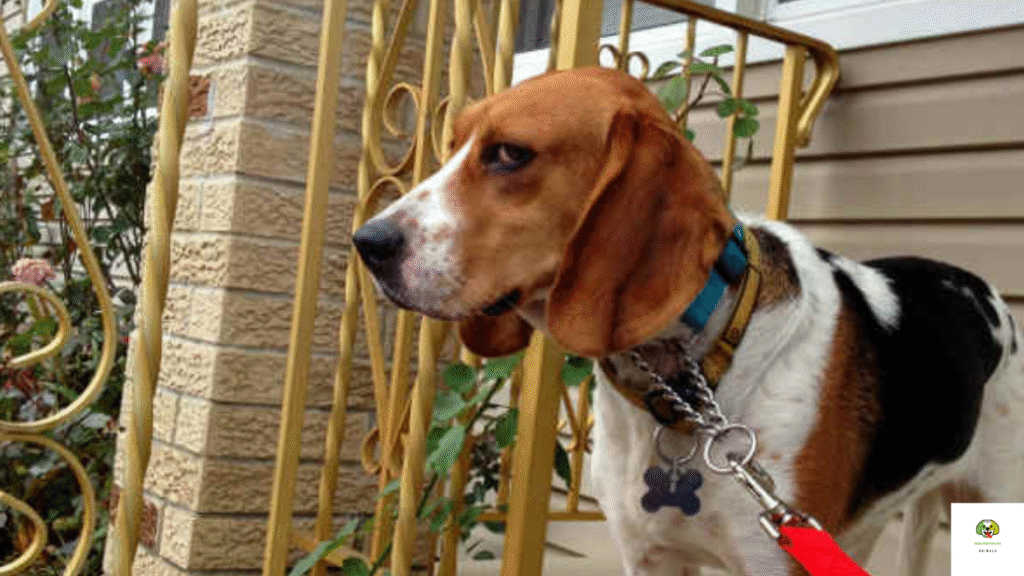
If your dog suddenly growls at being touched, runs away from you, or becomes irritable for no reason, then this may not be a sign of anger, but of pain or illness in the body. Our fur babies cannot speak, so they try to tell us in these ways that they are in pain.
Maybe they are having joint pain, an upset stomach, or some hidden disease is bothering them. Sometimes, tooth infection or earwax also becomes the reason for such behaviour. What to do first? Don’t get angry at all! Show him to a good veterinary doctor as soon as possible.
He can find out what is really wrong with your friend by doing a checkup. With a little examination and medication, he can become a happy and loving companion again. Keep in mind: such behaviour of theirs never changes, it is just helplessness.
Lack of proper training
If your dog hasn’t been taught exactly what you expect of him—such as “sit,” “stay,” or “don’t do that”—he can get confused. Dogs don’t understand human language; they learn from our cues and tone. When they’re not properly trained, they may repeat what you perceive as indiscipline.
You get angry, but the dog doesn’t understand what he did wrong. This causes two-way frustration—you think the dog is intentionally disobeying you, and the dog thinks you’re angry for no reason. So, regular, clear, and positive training is a must if you want to get along well with your pet.
Fear or anxiety
Does your dog run away from you, tremble, or try to hide? It may feel like they hate you, but the truth is that these behaviours are often a sign of fear or deep anxiety. Dogs don’t want to hate you like humans do; they react to fear.
Perhaps they have associated a past traumatic experience (such as being scolded or hit) with one of your habits, voices, or even clothing. Or they may be nervous about new situations (such as a new home, new people, or loud noises).
Fear can cause them to run, growl, bite, or cower in fear. Remember, this is not a dislike of you, but a feeling of helplessness. The good news is that this fear can be overcome with patience, love, and the right methods to earn their trust!
Scolding or punishing inappropriately
Often when a dog disobeys us or makes a mistake, we respond with angry punishments such as yelling loudly, hitting, pushing, or scaring. It may seem like this will make the dog better, but the truth is that these negative methods do not work, and instead damage the relationship between you and your dog.
Dogs do not understand these kinds of harsh punishments well. They cannot connect that their mistake (such as chewing furniture or urinating in the wrong place) was caused by yesterday’s scolding. They think you have suddenly become dangerous and unexpectedly aggressive. This creates fear and confusion in them.
They become afraid of you, lose trust in you, and avoid approaching you, playing, or showing affection. This behavior may seem like hatred when in reality it is a deep fear and lack of trust. The most effective way to teach dogs is to use patience, positive reinforcement (love, praise, reward), and correcting their mistakes immediately, clearly, and calmly.
Change in routine
Ever found yourself sadly wondering, “Why does my dog hate me?” Before jumping to that conclusion, consider this powerful trigger: a change in routine. Dogs thrive on predictability. Their sense of security and understanding of the world is deeply tied to knowing when walks happen, meals arrive, playtime starts, and quiet time begins.
When significant shifts occur—maybe you started a new job with different hours, moved house, had a baby, or even just drastically altered walk times—it throws your dog completely off balance. This disruption doesn’t manifest as hatred towards you but as confusion, anxiety, or stress.
They might act withdrawn, clingy, or destructive or ignore cues simply because their world feels unstable. That seeming coldness? It’s likely their bewildered reaction to a suddenly unpredictable schedule, not a loss of love for their person. Rebuilding consistency is key.
Physical needs are not being met
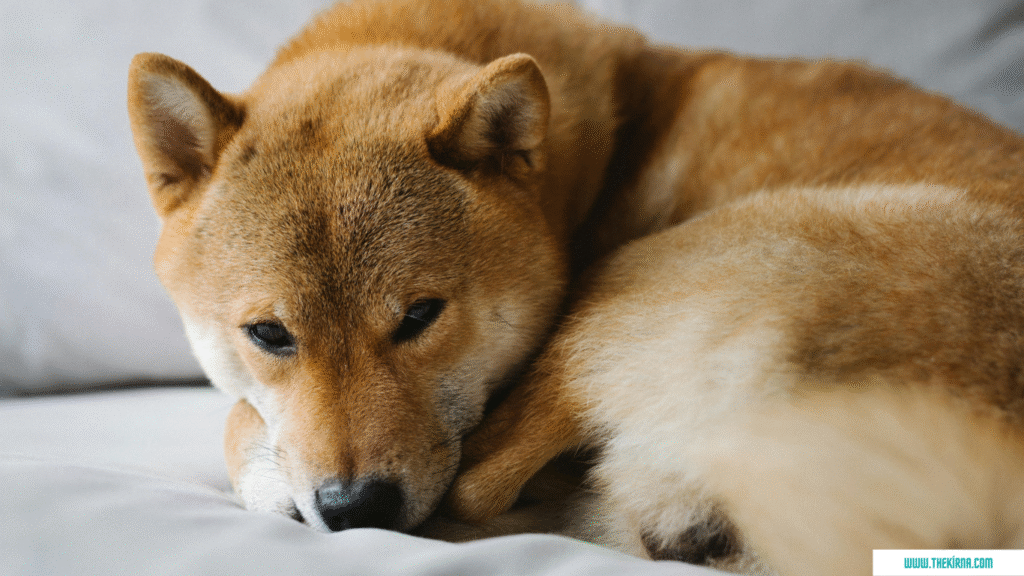
Does your dog bark for no reason, chew things, or run away from you? Does he seem angry? Maybe his basic physical needs aren’t being met. Just like we become irritable when we’re sick or uncomfortable, dogs show their discomfort through behavior.
Remember:
Not getting enough exercise: Every breed has a different energy level. If your companion doesn’t get enough walks, runs, or play, he may become restless, destructive, or irritable. His frustration may be taken out on you.
Not getting enough food or appetite: Late meals, a lack of food, or a lack of nutrition in his diet can upset him. Stomach pain or illness can also cause him to refuse food and become irritable.
Pain or illness: If the dog is suffering from an underlying illness, injury, joint pain, dental problems, or itching, he may avoid contact, growl when touched, or appear lethargic. This is not hatred, but suffering.
If ignored, these physical deficiencies can lead to behavior disorders. Before showing affection, make sure he is well fed, healthy, and has a proper outlet for his energy. Meeting these needs is the first step to a happy relationship.
Understanding Your Feelings
It can be heartbreaking to realize that your furry companion, your dog, is distancing himself from you or seems indifferent. “Does my dog hate me?” – This question is completely natural and reflects your concern and love. Remember, dogs do not have complex emotions like hate like humans do.
Their behaviour is always a way of communicating – it could be fear, insecurity, physical discomfort, lack of clear rules, or their reaction to your emotions. Trying to understand their language is the first step to bridging this gap. Let’s decode these signals together and find a way to re-strengthen the bond between you and your furbaby.
Too much control or restriction. Does your dog run away from you, avoid eye contact, or ignore what you say? It could be because of too much control. We often think that being too strict will discipline your dog, but this can have the opposite effect. When we restrict their every move and don’t allow them to play, sniff, or roam freely, they begin to feel stressed. This can cause them to feel fear, anxiety, or even rebellion.
They begin to see you as a “controller,” not a loving companion. Remember, dogs need space to explore, explore, and be happy. Too many restrictions are against their natural instincts and can make them resent you or distance themselves from you. Giving them some freedom according to age and need, along with loving, positive training, is the key to building a strong relationship.
Too much control or restriction
Does your dog run away from you, avoid eye contact, or ignore what you say? It could be because of too much control. We often think that being too strict will discipline your dog, but this can have the opposite effect. When we restrict their every move and don’t allow them to play, sniff, or roam freely, they begin to feel stressed.
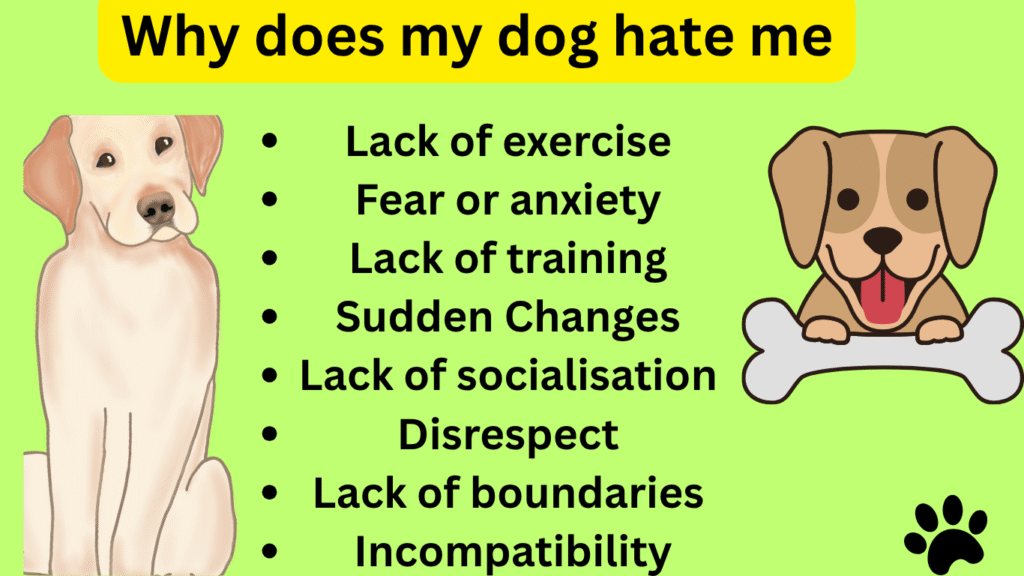
This can cause them to feel fear, anxiety, or even rebellion. They begin to see you as a controller, not a loving companion. Remember, dogs need space to explore, explore, and be happy. Too much restriction is against their natural instincts and can make them resent you or distance themselves from you. Giving them some freedom according to age and need, along with loving, positive training, is the key to building a strong relationship.
Excessive comparisons and love to another dog
Do you ever show one dog more love than another or compare them, such as look how good your brother is? This can hurt your other dog deeply. Dogs are extremely sensitive and crave your love, attention, and praise. When they constantly see another dog getting more cuddles, more talking, or more praise, they can feel sad, frustrated, or insecure.
This can make them jealous and they may begin to distance themselves from you. They may feel that no matter what they do, they will never be good enough in your eyes. This insecurity can show up in changes in their behavior and indifference to you. Every dog is unique – don’t compare, but recognise their peculiarities and love them differently.
Solutions
Feel like your dog is pulling away from you? Don’t worry! Remember, dogs don’t have true “hate” feelings. Often, this behavior is caused by fear, insecurity, pain, or misunderstanding. The solution is through patience and understanding.
Patience and positivity: Don’t be forceful or angry. Reward good behavior with love, praise, and tasty treats (positive reinforcement).
Earning trust: Understand their body language, be considerate of their likes and dislikes, and make them feel safe. Be calm and consistent.
Routine and training: Maintain routines (food, walks, play). Strengthen the bond with short, fun sessions of basic obedience (sit, come).
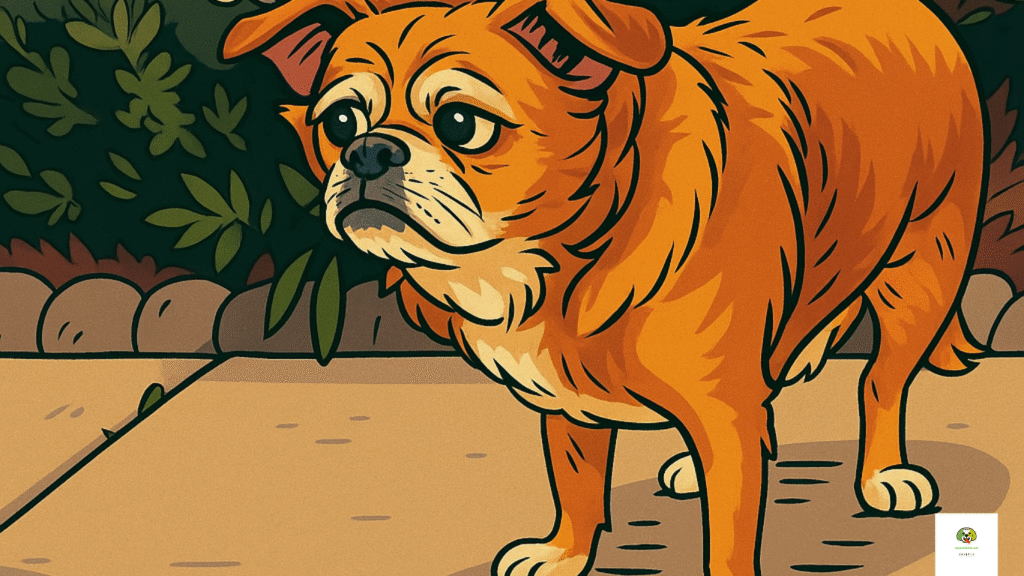
Address fear/anxiety: If fear or aggression is suspected, schedule a health check at the vet and seek help from a canine behaviorist. A little effort and a lot of love can rebuild the bond between you and your furbaby. It takes time to build trust, but the results are extremely rewarding!
Read Other Also
Should I Get a Cat or a Dog Quiz? Take This Fun & Insightful Quiz to Discover Your Perfect Pet!
Traveling with a Dog on Amtrak Just Got Easier – Follow These Simple Tips
Are Pitbulls Good with Kids? The Truth About Their Loyalty & Temperament
Top 10 best dog breeds for protection and family 2025
FAQ
-
How do I get my dog to like me again?
Yes! To make your dog your favorite again, follow these simple steps:
Increase special time: Spend quality time with him every day. Take him to new places, play with new toys, or just talk to him.Give love and attention: Pet him several times a day, cuddle him (if he likes it), and say sweet words of appreciation. Involve him in activities he enjoys.
Train and play: Have short fun training sessions. Teach him new tricks or repeat old ones. Give him his favorite treat when he succeeds! This helps him bond.
Positive association: Make being with you a happy experience for him. Going for a walk, giving him food, or playing – add love and treats to every good moment.
Remember: Be patient. Consistency and genuine love will surely help your dog bond with you again. Your love will make him/her your favorite!
-
How do I get my dog to like me again?
Here are some simple tips to help you gain your dog’s trust:
Be patient and don’t push: Don’t force him to come close or show affection. Respect his pace.
Add positive reinforcement: When he comes to you, is calm, or behaves well, immediately talk to him, pet him, or give him his favourite treat. Don’t scold or show anger.
Spend time: Without demanding, sit quietly with him (at a distance), read, or watch TV. Your calm presence builds trust.
Fun activities: Play with him (ball, tug of war), go for a walk, or teach him tricks. These add positive experiences.
Soft body language: Talk from a low position (don’t stand tall), don’t make eye contact, use a soft voice.
Remember: It took time to break trust, and it will take time to gain it back. Constant love, understanding and positivity are the key, brother! -
Why does my dog reject me?
If your dog is avoiding you, the following are the main reasons:
Physical problems: Pain, illness, or aging can cause irritability.
Stress environment: Fights, a new pet, or noise in the house can make him feel insecure.
Changes in routine: Changes in feeding/walking times or your busy schedule can make him upset.
Unintentional scaring: Sometimes yelling or grabbing him hard can shake his trust.
Old memories: If he has been bullied in the past, certain gestures (such as a loud voice) can scare him.
What to do?
Be patient, give him his favorite food/toys, and be gentle. If symptoms persist, be sure to see a vet — pain treatment may be needed. -
What to do if you accidentally step on your dog?
If you accidentally step on a dog, don’t panic, Do the following:
Remove your foot immediately: Be careful and lift your foot immediately.
Stay calm: Don’t shout, otherwise the dog will get more scared.
Apologise: Say lovingly – “Sorry, child!” or “Oh! Are you hurt?”
Check: Touch the area gently to see if it is hurt.
Give love: If the dog agrees, pat its belly or give it a favourite treat.
Give space: If it moves away, don’t force it. It will come back on its own after a while.
Keep an eye on it: If it limps or shows pain, show it to a doctor. Keep in mind: Dogs understand emotions. Your loving behaviour will reassure them quickly!
